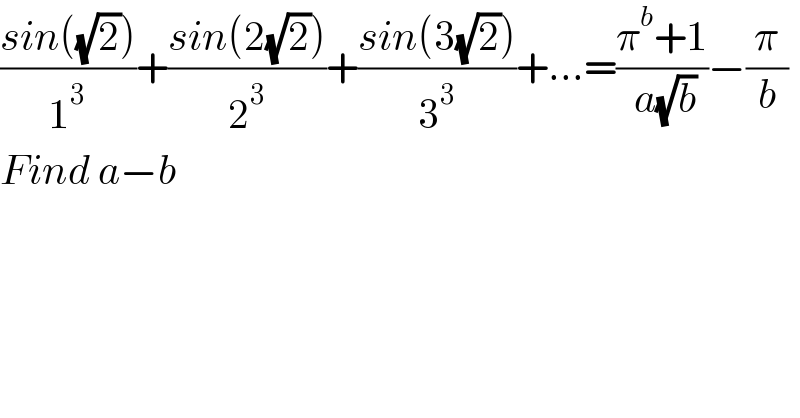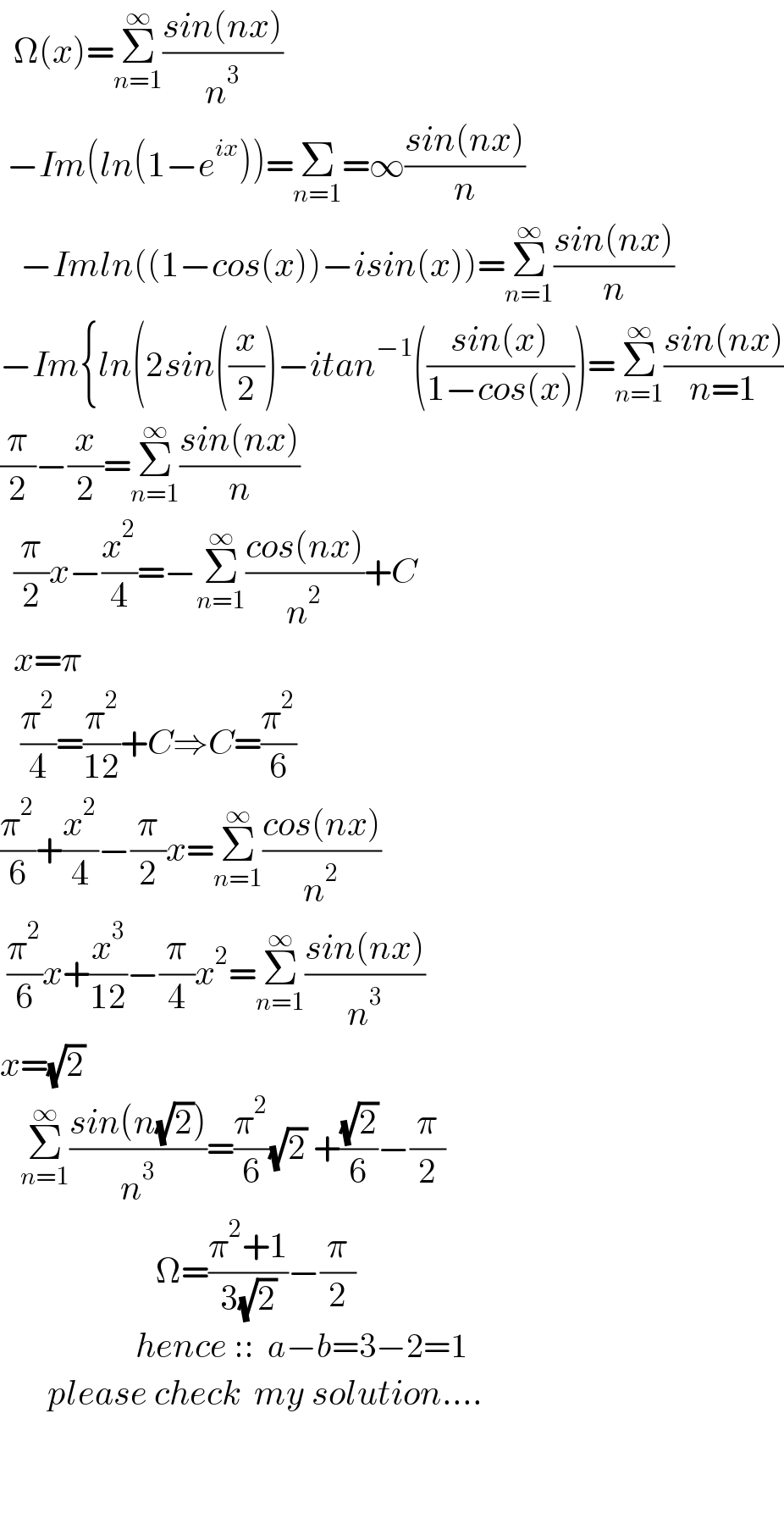
Question and Answers Forum
Question Number 136070 by Dwaipayan Shikari last updated on 18/Mar/21

Answered by mnjuly1970 last updated on 18/Mar/21

Commented by Dwaipayan Shikari last updated on 18/Mar/21

Commented by mnjuly1970 last updated on 18/Mar/21

